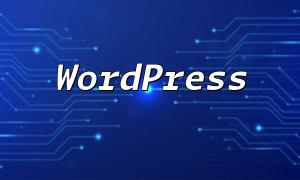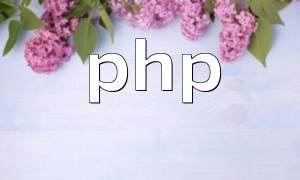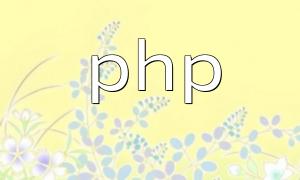For most developers, object-oriented programming (OOP) has become an essential approach to software development. By adopting an OOP mindset, improving code reusability, readability, and maintainability becomes much easier.
In PHP, mastering the following keywords and concepts is essential for understanding object-oriented programming:
<h3>Classes and Instances</h3>
<p>A class is an abstract description of a type of thing that contains data and methods. In PHP, a class can be defined using the <code>classclass Person {
public $name;
public $age;
function __construct($name, $age) {
$this->name = $name;
$this->age = $age;
}
function sayHello() {
echo "Hello, my name is " . $this->name . " and I am " . $this->age . " years old.";
}
}
<p>Once a <span class="hljs-keyword">class is defined, an instance (or object) of that class can be created. An instance is a specific realization of a class, containing the class<span><span class="hljs-comment">'s defined properties and methods. In PHP, you can create an instance using the <code>new$person = new Person("John", 20);
$person->sayHello();
<p>Creating and using classes and instances is the foundation of object-oriented programming.</p>
<h3>Encapsulation, Inheritance, and Polymorphism</h3>
<p>The three core principles of object-oriented programming are encapsulation, inheritance, and polymorphism.</p>
<p>Encapsulation: Bundles data and methods together, hiding internal details from the outside world;</p>
<p>Inheritance: Allows a class to derive from another class, inheriting its properties and methods;</p>
<p>Polymorphism: A class can exhibit different behaviors in different situations.</p>
<p>In PHP, encapsulation is achieved using <code>publicclass My_Widget extends WP_Widget {
// Plugin header information
function __construct() {
parent::__construct(
'my_widget', // Widget ID
'My Widget', // Name displayed in the admin dashboard
array('description' => 'My Widget description') // Widget description
);
}
// Plugin code
function widget($args, $instance) {
// Display widget content
}
function form($instance) {
// Display widget settings page HTML
}
function update($new_instance, $old_instance) {
// Update widget settings
}
}
function register_my_widget() {
register_widget('My_Widget');
}
add_action('widgets_init', 'register_my_widget');
<p>By combining object-oriented programming with WordPress plugin development, developers can significantly improve code quality, readability, and maintainability. Mastering both PHP OOP and WordPress development techniques will help developers start creating plugins efficiently and effectively.</p>










